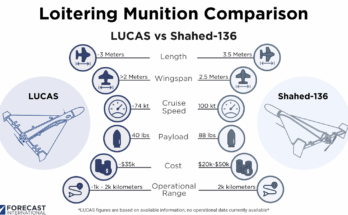
Solomon Islands Prime Minister Manasseh Sogavare has requested a review of a 2017 defense treaty with Australia, months after finalizing a security pact with China that permits Chinese troops to deploy to the island. Sogavare’s move has raised concerns in Australia and the U.S. about expanding Chinese influence in the Pacific region.
The Australia-Solomon Islands security treaty, signed in August 2017, allows the rapid deployment of Australian police, defense personnel and civilians to the Solomon Islands with mutual consent. The treaty covers security threats, including natural disasters, and permits contributions from third countries. Australia’s first bilateral security treaty in the Pacific, it replaced the expired Regional Assistance Mission to Solomon Islands (RAMSI) treaty. In November 2021, the treaty was activated for the first time when the Solomon Islands sought Australian support during civil unrest.
The new security pact with China, signed in April 2022, has been seen as part of Chinese efforts to secure a military foothold and challenge U.S. primacy in the Asia-Pacific region. After the deal was signed, Sogavare emphasized that he did not intend to allow China to build a military base on the island. The U.S. remains wary of the possibility of Chinese troops some 1,200 miles (2,000 km) off the Australian coast.
The move by the Solomons appeared to reignite U.S. attention on the region. Washington has conducted several diplomatic visits since and signed a security agreement with Papua New Guinea, the Solomon Islands’ western neighbor, allowing for the development and operation of military bases.
Australia has historically played a significant role in the diplomatic and military affairs of the Solomon Islands. Following World War II, the United States, and its ally, Australia, were the dominant powers in the Pacific. Canberra has provided substantial aid and served as a major development partner for the Solomon Islands.
China’s ambitions in the Pacific have presented new challenges to Australian influence. In September 2019, the Solomon Islands decided to revoke its longstanding support for Taiwan and establish diplomatic relations with China, citing economic considerations. Peter Shanel Agovaka, a long-time member of the Solomon Islands Parliament, said that “we cannot sit for the next 40 years with our friends Taiwan. It is time that we make new friends – it’s time that we should move on with our life.”
Sogavare clarified that he does not intend to downgrade relations with Australia. He emphasized Australia’s role as a significant aid donor and development partner for the Solomon Islands and expressed the desire to enhance the relationship further. Australian Defense Minister Richard Marles appeared to welcome the review, calling it an opportunity to update the treaty based on the contemporary security environment and Australian assistance. Marles also indicated that Australia was prepared to maintain peacekeeping troops in the Solomon Islands until the Pacific Games in December 2023, and further agreed to keep troops on the islands until they have their election, which has now been delayed until April 2024.
This article was originally published on our sister site, Military Periscope, the world’s easiest-to-use, up-to-date, open-source military database covering weapon systems and armed forces from around the world.
Aja Melville is an accomplished editor and analyst with expertise in open-source intelligence (OSINT) and database management. As the Weapons Editor and Analyst at Military Periscope, Aja has applied her analytical skills and in-depth knowledge in military affairs and global defense sector advancements, particularly focusing on China and the Asia-Pacific region.
Aja's commitment to international relations and Asia-Pacific focus is highlighted by her educational background. She holds a Bachelor of Arts in International Relations and Chinese Language from Bard College, complemented by a Certificate of Advanced International Studies from the Bard Globalization and International Affairs Program. Aja further expanded her linguistic skills with a Certificate of Intensive Language Studies in Chinese (Mandarin) from Qingdao University.





